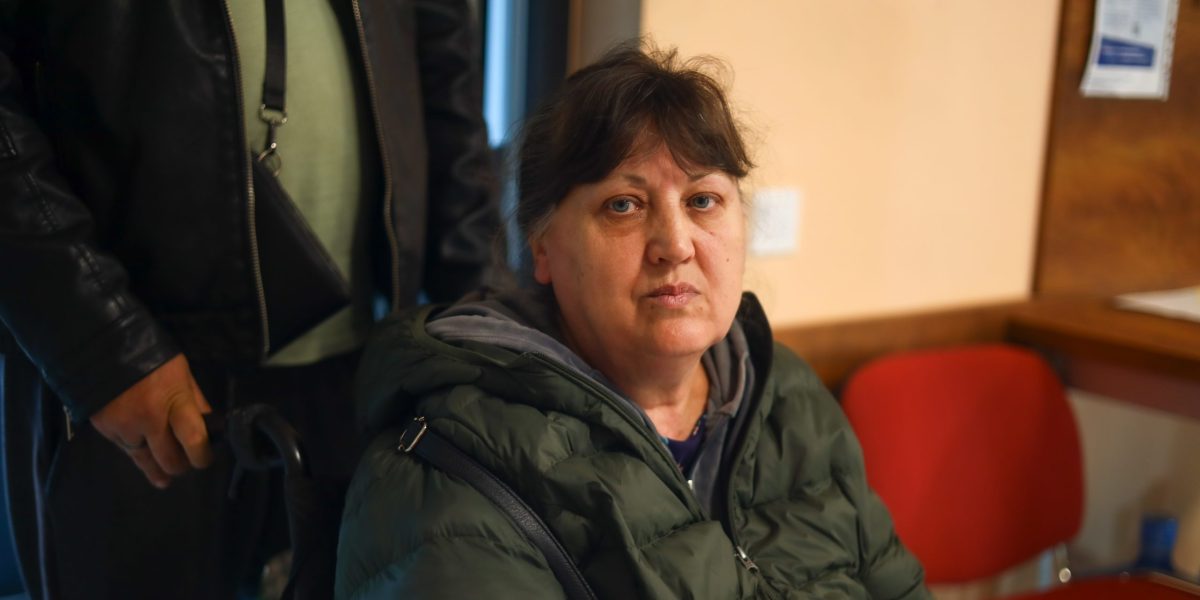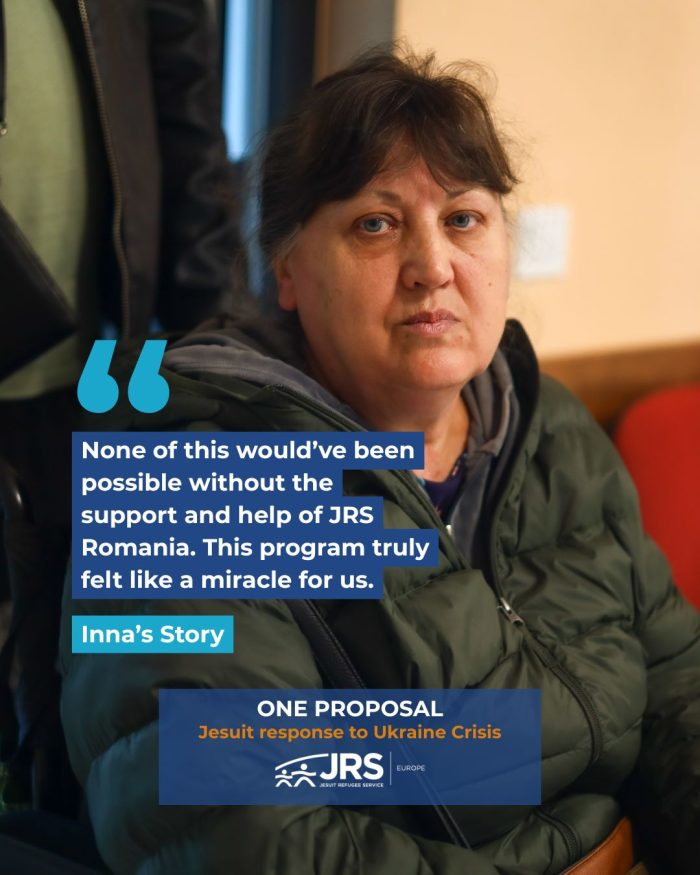Inna: “None of this would’ve been possible without the support and help of JRS Romania. This program truly felt like a miracle for us.“
24 November 2025

Displacement experience
Inna is originally from the village of Komyshuvakha. She has had a disability since childhood — she was born with hip dysplasia. After the birth of her son, her condition worsened, and she could only walk with a cane. Later, she received hip joint implants, but her body rejected them, leading to sepsis. Doctors gave her a choice: either remove the implants and start using a wheelchair, or risk her life. Since 2014, Inna has been confined to a wheelchair. Her son Vitaliy became her official caregiver.
Inna vividly remembers the moment the war began: “At 6 in the morning, my son came to me and said, ‘Mom, the war has started. Within a minute, I heard explosions.” Inna recalls. “It was a shock — to have lived a peaceful life, and then suddenly, war.”
Evacuations began for people with disabilities and the elderly in the village. “They took us to a home for the elderly and left us there,” Inna recalls. Then the staff said: ‘We’ll admit you here as a person with a first-degree disability, but we can’t keep your son — he has to leave.’ But where would he go?”
So, the family decided to go abroad. They found contacts of volunteers who quickly responded and organized their travel to Bucharest. Since March 30, 2022, they have been living there permanently. “The hardest part was not knowing the language,” Inna remembers. “We were afraid of everything — people, stores, unfamiliar places… It’s much easier now. I’m learning the language online. I feel like I’ve adapted. But none of this would’ve been possible without the support and help of JRS Romania.”
Encounter with JRS
Inna learned about JRS Romania from another Ukrainian with a disability. “Since then, JRS Romania has continued to support us, covering the cost of prescriptions for the medications we needed,” Inna recalls. “And now, through the medical support program, we’ve been able to purchase pain medication, which I need constantly because I have osteoporosis. I’ve also undergone necessary medical examinations.
This kind of support is vital for us. My disability pension is just enough to cover rent and utilities. There’s barely anything left for food. My son can’t work much, as I can’t manage even basic daily tasks without him. Right now, there’s hardly any assistance available for Ukrainians, even for those in vulnerable situations like ours. So this program truly felt like a miracle for us.”
Integration and future
“I will never forget how the Romanian people welcomed us at the border,” she recalls, tears welling up in her eyes. “They supported us, gave us food and clothing. And that feeling of safety — no gunfire, no explosions, nothing flying overhead.” It was volunteers who initially helped the family settle in a refugee center located on the grounds of a home for the elderly. They lived there for eight months, and later found housing through Romania’s state support program. “I’m deeply touched by how many people want to help when they see me in a wheelchair,” Inna says. “On public transport, in shops — everyone is kind. And I’m endlessly grateful for that. That during such a difficult time in our lives, in a foreign country, people have reached out with compassion.”
Inna speaks about the future with a hint of fear in her voice. Her home in Ukraine was looted and later destroyed by enemy shelling. She no longer knows where to go or how to rebuild her life. “There’s nowhere for us to return to, even if the war ends,” Inna admits. “But we also won’t be able to stay here forever. I don’t know how to plan for the future, or what to hope for. You just live one day at a time.”
JRS is working together with the Xavier Network, the Society of Jesus in Europe, local civil society, and NGOs in a coordinated Jesuit response. Together we help thousands of people like Inna. You can read more about The One Proposal at: jrseurope.org/en/project/the-one-proposal/.

